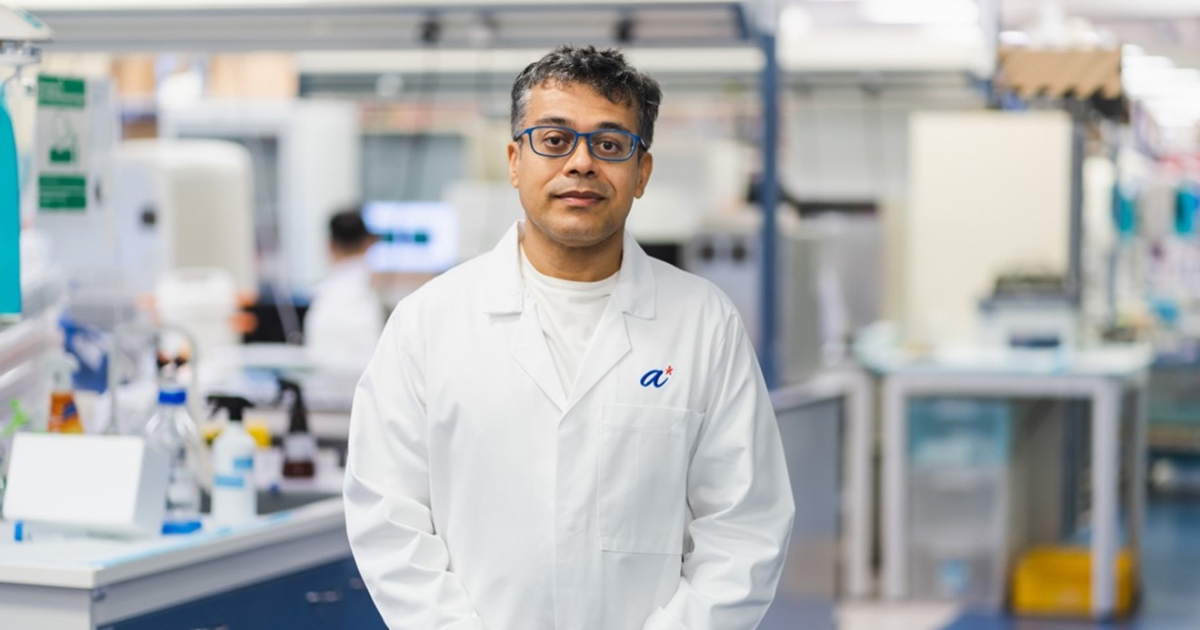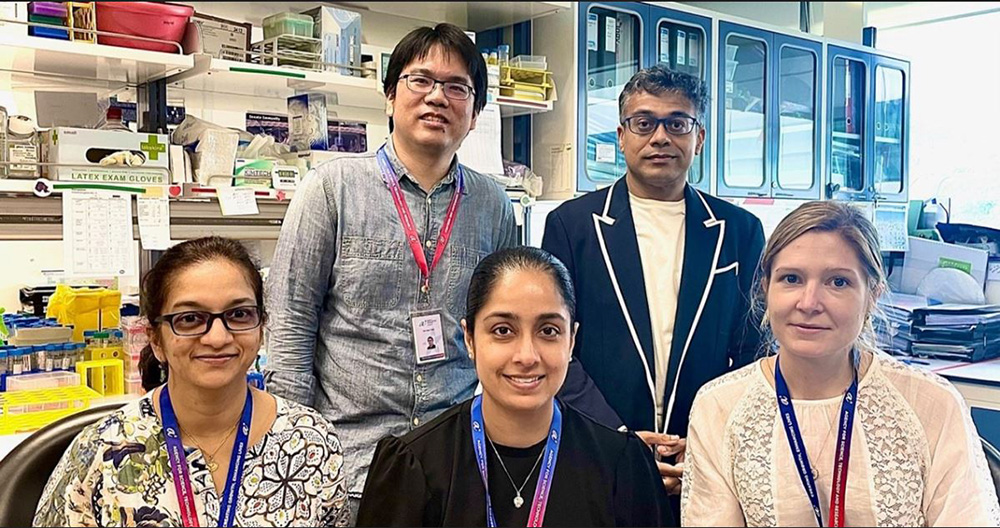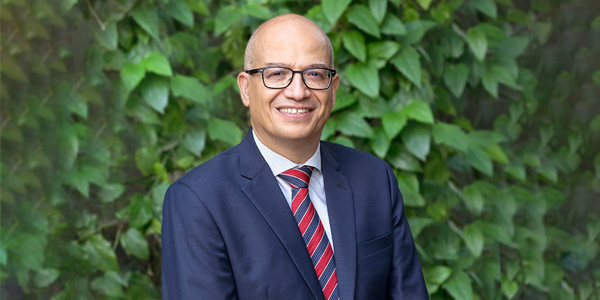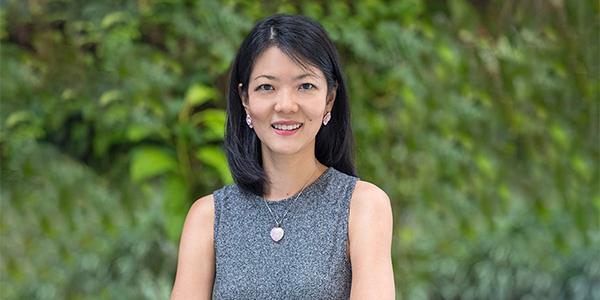FACES OF A*STAR
Enabling More Targeted Immunotherapy For Cancer Patients
By understanding how patients’ immune systems interact with their tumours, oncologists can eventually deliver more effective treatment.

While immunotherapy has offered hope to many cancer patients, the average treatment response rate for patients remains low. This has spurred scientists like Dr Subhra S Biswas, Principal Investigator at A*STAR’s Singapore Immunology Network (SIgN) and one of our most highly cited researchers, to investigate how and why some patients respond better to immunotherapy.
Immunotherapy harnesses one's immune system to fight diseases, and as one of the treatment options for cancer, it is typically costly.
In collaboration with industry partners and healthcare institutions, Dr Biswas and his team are developing a Cancer Immunogram (CIg), which shows a multi-parametric score of interactions between cancer patients' immune system and their tumours.
"The idea is to have a pipeline to generate a CIg and correlate them to patients' response to immunotherapy," says Dr Biswas, who also heads the Human Innate Immunity Lab at SIgN.
"We can then use artificial intelligence (AI) to build tools to predict how likely cancer patients will respond to immunotherapy."
The team analyses blood and tissue samples from 200 patients to create the CIg. The project started in 2019 and is under the SInGapore ImmuNogrAm for Immuno-OncoLogy (SIGNAL) Programme.
"Creating a multi-parametric score is what makes the CIg unique," says Dr Biswas. "We know of other research institutions focusing on, say, genomic screens and other protein markers, to see which patient responds to immunotherapy.
"The Cig under SIGNAL makes more sense as we look at various markers that possibly affect a patient's response to immunotherapy."

He adds that two centres of excellence focusing on spatial immunoprofiling technology for biomarker discovery have also been established to drive the programme.
Besides his work on SIGNAL, Dr Biswas also studies macrophages, immune cells that fight tumour cells. Yet, some macrophages, known as tumour-associated macrophages (TAM), can transform to fuel tumour growth instead.
"My lab aims to characterise macrophages in human cancer patients, including identifying the immune biomarkers of TAMs and molecules they express," he says.
"This way, we can use the information to target or re-programme these cells to switch them into anti-tumour mode."
He believes targeting TAMs is more effective than targeting other immune cells like the T-lymphocytes as they often fail to infiltrate the tumour cells efficiently.
Dr Biswas' fascination with microphages started decades ago when he was a postdoctoral fellow at Istituto di Ricerche Farmacologiche Mario Negri in Milan, Italy. He worked with his mentor Professor Alberto Mantovani, the first scientist to characterise the role of TAMs in tumour progression.
He says, "Research takes time and over the years, you will experience a lot of failures."
"You simply have to learn from these failures and move on. To succeed, you've got to be clear why you're in it in the first place."
"It's about wanting to make a difference in human life," he adds.
Was this article helpful?
A*STAR celebrates International Women's Day

From groundbreaking discoveries to cutting-edge research, our researchers are empowering the next generation of female science, technology, engineering and mathematics (STEM) leaders.
Get inspired by our #WomeninSTEM




